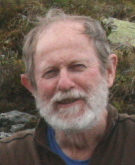Roger Clarke's Web-Site
© Xamax Consultancy Pty Ltd, 1995-2024

Infrastructure
& Privacy
Matilda
Roger Clarke's Web-Site© Xamax Consultancy Pty Ltd, 1995-2024 |

|
|||||
| HOME | eBusiness |
Information Infrastructure |
Dataveillance & Privacy |
Identity Matters | Other Topics | |
| What's New |
Waltzing Matilda | Advanced Site-Search | ||||
Notes of 2 November 2006
© Xamax Consultancy Pty Ltd, 2006
Available under an AEShareNet ![]() licence or a Creative
Commons
licence or a Creative
Commons  licence.
licence.
This document is at http://www.anu.edu.au/people/Roger.Clarke/II/CvW.html
Wikipedia is the most prominent of the new-age collaborative information sources. But even its champions acknowledge that there are challenges, and choices to be made.
Larry Sanger, one of Wikipedia's co-founders, has long been dissatisfied with some aspects of its management. He announced on 17 October 2006 his intention to spawn a fork, or republished version, of Wikipedia that is intended to progressively develop higher-quality, more reliable articles.
Sanger envisages the core difference about Citizendium as being a set of editors, with interleaved scope, who will take responsibility for approving articles and amendments to articles. There will be rules that are rather less loose than Wikipedia's (e.g. contributors must declare their 'real names' - whatever that means), 'constables' who will enforce the rules, and a process for appointing and controlling editors and constables. Sanger intends that the appointment process will have collaborative features, but the proposal at this stage is sketchy.
The essence of the debate is whether and how to quality-assure the content of collaborative information sources. The orthodoxy within the open movement is the 'many eyes' principle: errors will come to attention and be addressed, because of the sheer volume of people who are looking and who are empowered to do something about them. The risk of pollution is high, and anarchy looms; but believers say it can be avoided.
Some people are nervous about pollution and anarchy, and uncomfortable with constructive looseness. They prefer layers of controls, and trust in a few rather than trust in the 'great unwashed hordes'. They point to the increasing incidence of Wikipedia pages being frozen for short periods, to let tempers cool. (As this was being written, the Wikipedia entry for 'Wikipedia' was locked, with the explanation "Because of recent vandalism or other disruption, editing of this article by unregistered or newly registered users is currently disabled. Such users may discuss changes, request unprotection, or create an account.").
The distinctions between the two approaches might be seen this way:
Wikipedia | Citizendium | |
| QA Principle | 'Many eyes' | 'A few good men' |
| QA Style | Open collaboration among many | An inner clique of guardians, possibly self-perpetuating |
| QA Process | Informal review, by genuine 'peers' as in 'equals' | Formal review, by an approved set of 'peers' as in 'peers of the realm'? |
| Editorial Style | Self-organising and/or Anarchic | Heirarchical command and control, but with a collaborative appointment process? |
There are many aspects of Citizendium that cast doubt on its ability to survive any longer than its predecessor Nupedia, let alone thrive. Will the elite few prove to be as energetic as the egalitarian hordes? Will the bureaucracy of editorial committees cause even the first few score pages to miss their window of opportunity? Will any of the pages ever score high enough on Google rankings to be noticed? Will the quality difference matter to people, or will the 'good enough' of Wikipedia trump the new approach, just as Microsoft's Encarta, by using some of Funk & Wagnall's middle-brow encyclopaedia, trumped Britannica? Will the inevitable re-branding as something trendier like 'Zendi' be enough to revive interest?
Ultimately, the community will vote with its feet, or consumers will determine what the market wants by paying with their clicks and eyeballs (choose your preferred metaphor). Perhaps the venture's greatest contribution will be to help us learn about quality assurance of open content.
Roger Clarke is Principal of Xamax Consultancy Pty Ltd, Canberra. He is also a Visiting Professor in the Cyberspace Law & Policy Centre at the University of N.S.W., a Visiting Professor in the E-Commerce Programme at the University of Hong Kong, and a Visiting Professor in the Department of Computer Science at the Australian National University.
| Personalia |
Photographs Presentations Videos |
Access Statistics |
 |
The content and infrastructure for these community service pages are provided by Roger Clarke through his consultancy company, Xamax. From the site's beginnings in August 1994 until February 2009, the infrastructure was provided by the Australian National University. During that time, the site accumulated close to 30 million hits. It passed 65 million in early 2021. Sponsored by the Gallery, Bunhybee Grasslands, the extended Clarke Family, Knights of the Spatchcock and their drummer |
Xamax Consultancy Pty Ltd ACN: 002 360 456 78 Sidaway St, Chapman ACT 2611 AUSTRALIA Tel: +61 2 6288 6916 |
Created: 2 November 2006 - Last Amended: 2 November 2006 by Roger Clarke - Site Last Verified: 15 February 2009
This document is at www.rogerclarke.com/II/CvW.html
Mail to Webmaster - © Xamax Consultancy Pty Ltd, 1995-2022 - Privacy Policy